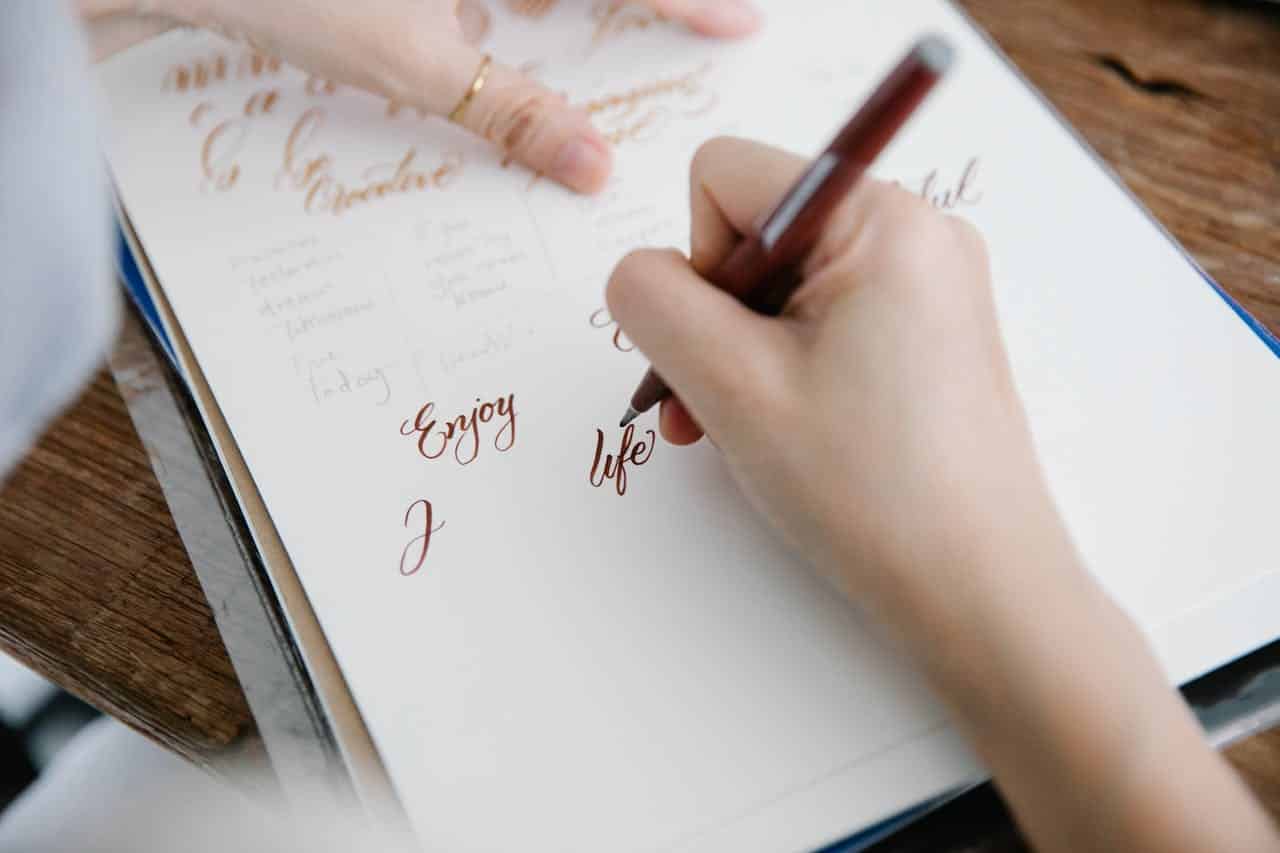How To Get More Done by Having Fun (Plus 9 Fun Habits To Try!)

Make work more enjoyable & be more productive by stacking fun little habits into your day.
A few days ago, I emerged from my home office during a brief break to discover my two young children using my yoga mat as a stage. They were pink-cheeked, wearing about 83% of their dress-up bin, and full of giggles.
“Mommy, teach me how to do a carton wheel!”
Just two smiling faces and a simple phrase, and I realized how much fun I’d been missing.
Although we can’t swap our work for child’s play, and our co-workers probably wouldn’t appreciate a “carton wheel” attempt, we can still add some fun into our workday.
And surprisingly, having fun every day can actually boost our productivity.
Research suggests that some of the habits we think are distractions may actually help us be more productive, providing mental stimulation, motivation, and enjoyment during the working day.
Let’s explore how incorporating a few unusual little habits into your daily routine, preferably fun ones, may help you be more productive.

Little Things Matter in Big Ways
Life’s significant milestones — moves, careers, families — have a noticeable impact on our lives. But what about life’s little moments? The everyday routines, ordinary habits, and seemingly unimportant acts?
We often overlook how vital simple things can be — now and in the future. Yet research shows we value the little details that happened when reflecting on our experiences.
“What is ordinary now actually becomes more extraordinary in the future — and more extraordinary than we might expect,”
said Harvard Business School researcher Ting Zhang.
They’re extraordinary for our memories, but they’re also remarkable in their potential to change our lives for the better. Science has proven that we have a hard time forming life-changing habits — our willpower just isn’t that strong.
But starting with a tiny habit? We can do that.
Stanford Professor BJ Fogg has conducted extensive research on tiny habits. In his book “Tiny Habits,” he outlines a framework for building habits that many call The Fogg Method. His approach focuses on how small, specific actions can be used to affect behavior.
We often overlook how vital simple things can be. Yet research shows we value the little details when reflecting on our experiences.
Stacking Tiny Habits
A new habit can be formed by pairing it with one already in place. Fogg uses anchoring to describe this approach because your old habits act as anchors that hold the new ones.
Atomic Habits author James Clear expanded on this concept using habit stacking. He explains that stacking habits works due to a brain process called synaptic pruning.
As we age, the brain becomes more efficient by removing synapses that are no longer needed and strengthening those used frequently. This pruning aids in habit formation — the brain literally wires in the habit. And if we attach something new to those hardwired processes, it becomes a lot more likely that we’ll actually perform the task.

The Surprising Key To Productive Habits
We all have daily routines, but, according to a study, they’re not that exciting. Approximately two-thirds of American adults said they felt limited in living a fulfilled and happy life. And only 53% of respondents said they get “enough” fun, despite 97% believing that it is important.
These numbers are from a few years ago. Given the recent pandemic and other events, it’s a pretty safe bet that the number is even lower now.
Considering the numerous studies that prove fun is vital to our well-being and crucial to workplace productivity, performance, and morale, it’s evident we need a funtervention.
Approximately two-thirds of American adults said they felt limited in living a fulfilled and happy life.
What Is Fun, Anyway?
There are probably as many definitions of fun as there are people on this planet. Fun can’t be defined by a specific action, activity, or thing. The concept of fun results from many factors, and it means different things to each of us.
In The Power of Fun: How To Feel Alive Again, award-winning journalist Catherine Price explores the concept of fun and why it’s essential in our lives. Drawing on her writing and research in fields such as happiness and positive psychology and new polls with her Fun Squad, Price developed and validated a working definition of fun.
According to Price, True Fun occurs when three elements come together:
- Playfulness: Being lighthearted and doing things with little concern for the outcome.
- Connection: The sense of being in touch with another person.
- Flow: Being so focused and immersed in the present experience that you lose track of time.
These elements can help you prioritize True Fun in your life. You can begin to create new opportunities for playfulness, connection, and flow in your life by learning how to recognize where they already exist.
True Fun vs. Fake Fun
Authentic and fake fun are two different things, according to Price. Surely you know this evil alter ego of True Fun — we see it every day on our news feeds and social media. Fake Fun is what we are sold as “fun,” such as scrolling Instagram endlessly and buying stuff on Amazon we don’t really need.
Despite providing an initial jolt of pleasure from dopamine release, these activities ultimately sap us of the time we need to truly enjoy ourselves and our lives.
When we’re faced with a shocking lack of fun in our lives (in my case, an absence of “carton wheels”), we often assume that we should add more activities and more things. But the opposite is true, Price suggests. Play, connection, and flow, which we already have in our lives, just need some room in your schedule to flourish.
If you just grimaced at the thought of planning fun, don’t worry — it isn’t necessary to pencil FUN on your calendar. Eliminating some of the un-fun activities consuming your attention (ahem, phone time) will give you more time to do things that make you feel happy without feeling overwhelmed.

Making a Case for Fun
The apparent benefit of fun is that it is, well, fun. But beyond the obvious, fun has many scientifically-proven health benefits:
- Reduced stress. Cortisol, a stress-inducing hormone, is decreased by laughing and having fun.
- Improved physical health. A recent study shows that physical activity promotes happiness and vice versa.
- Decreased depression and better sleep. Fun boosts serotonin levels, associated with better sleep patterns and a more positive outlook on life.
- Improved immune system. Neuropeptides produced by laughter help to fight stress and more severe illnesses.
As if this wasn’t enough, fun can actually be a trigger to boost your productivity, too. Research has found that people who can mentally disconnect from work experience less work-related fatigue, procrastinate less, and do their jobs more effectively.
People who can mentally disconnect from work experience less work-related fatigue, procrastinate less, and do their jobs more effectively.
Fun in the Form of Deliberate Rest
Try working on a hobby, task, or skill you enjoy to psychologically disconnect from work.
Author Alex Pang calls this deliberate rest. In his book Rest: Why You Get More Done When You Work Less, he explains that:
“deliberate rest helps you recover from the stresses and exhaustion of the day, allows new experiences and lessons to settle in your memory, and gives your subconscious mind space to keep working.”
He relates numerous stories of famously productive people who took on challenging and meaningful hobbies during their downtime, a form of deliberate rest he calls mastery experiences. Pang explains:
“Mastery experiences are engaging, interesting things that you do well. They’re often challenging, but this makes them mentally absorbing and all the more rewarding when they’re proficiently executed.”
Setting the Stage for Play
What can you do to make your day more fun? First, consider reading Price’s book — it contains an entire plan for your own funtervention! (Or, you could take the Fun Personality Quiz at HowtoHaveFun.com.)
To get started, identify your sources of Fake Fun. Do you get lost in scrolling endlessly or waste hours watching Youtube? Consider what you can do to address your screen/life balance to create more space for fun (hint: use Freedom).
Next, think of the experiences in your life that you found fun and compare what activities, people and settings they shared. Price calls these your fun magnets, and they can naturally draw fun into your life. Once you’ve cleared your day of Fake Fun, try adding some magnets to the empty spaces and see what happens.
For example, one of my fun magnets is being around my kids, especially during playtime. Rather than scrolling Instagram during my work break, I could make it a habit to step out of my office instead. Nine times out of ten, my kids will chase me for a tickle or a “carton wheel.” And when it does happen, I didn’t plan fun. It happened naturally when I replaced my phone with a well-timed break from work.
As a bonus, use habit stacking to add fun to the rest of your day. Something magical happens when you combine your fun magnets with habit stacking — just adding a little extra to your existing routine can make a big difference.

Boost Productivity (And Have Some Fun!) With These 9 Surprising Habits
Want to get more done and still have fun? Here are seven fun habits you can adopt to add a little fun to your day and increase productivity. While some of these may not seem like much, and others may even seem counter-intuitive, give them a try. You may be surprised at their impact.
1. Dress to Impress
Clothes are a basic human need, but in some ways, they are actually much more than that. The clothes we wear can influence not only how others perceive us, but also our moods and actions. Wearing an outfit that makes you feel relaxed and confident can influence your words, thoughts, and actions. The effect is even referred to as “clothed cognition.”
2. Get Your Doodle On
Take out your markers and close your laptop — it’s time to go analog for a while. The act of doodling during the workday can temporarily release self-control, allowing you to refresh your focus. Drawing is also an effective way to boost memory, according to research.
Better yet, it’s also good for our health – studies have shown that visual creativity, especially doodling, enhances our mood, concentration, health, and well-being. Drawing and doodling can help alleviate boredom, anxiety, and stress by engaging cognitive processes that counter these emotions.
3. Play On Your Phone
You read that right! Most of us enjoy a good game but usually feel pretty bad about indulging when we have things to do. Good news — you can actually increase your productivity by playing games! Here are a few to try:
- Habitica: Making daily habits into a game helps you stick to them.
- Superbetter: “Playing SuperBetter for 30 days improves mood and perceived social support, and increases belief in the ability to successfully achieve goals.” Impressive!
- Lumosity: You can train your brain by playing games to improve your memory and cognitive abilities.
- Zombies, Run!: Making exercise fun makes it more likely that you’ll stay with it.
- NYTimes Crossword: Solving daily crossword puzzles is proven to stimulate the brain and increase cognition.
- Wordle: Josh Wardle’s addictive word search game has recently gone viral (and the crew at Freedom loves it!) for its satisfying and straightforward gameplay.
4. …but Not for Too Long. Take a Break!
All that nerding out may be fun, but don’t spend too long on your phone — keep that screentime to a minimum and make sure you take breaks throughout the day. Although it may seem counter-productive to increasing productivity, taking time out can be incredibly helpful for your long-term progress. Breaks have many benefits like preventing decision fatigue, restoring motivation, and improving memory and learning.
5. Better Yet, Take a Walk
During your break, take a stroll around the block to get some movement and fresh air. Walking has been proven to stimulate creativity and physical activity. It can also increase creative thinking by opening up a free flow of ideas. As an added bonus, nature calms the mind.
6. Bury Your Nose in a Book
Reading has numerous benefits for productivity and cognition. In addition to providing entertainment and joy of your imagination, studies show that reading for pleasure improves literacy, social skills, health, and learning outcomes. Consider taking 15 minutes or so to read something other than an email. Your mind will feel energized, inspired, and ready to tackle the rest of the day.
7. Get Hooked on Knitting
Remember how Pang talked about the power of deliberate rest? Consider knitting as a new hobby. Grandma was onto something with all that yarn — turns out, what may seem like a passive and relaxing hobby is actually very productive. Research shows that knitting is good for your mental health, notably increasing happiness in over 80% of study participants.
8. Live Your (Day)Dreams
Daydreamers everywhere, it’s time to unite — our favorite pastime is actually incredibly productive! Study results reveal a relationship between daydreaming and higher levels of working memory and improved performance and cognitive function. (How I wish I could share this with my fourth-grade teacher.)
9. Do Nothing
Yep, you read that right. The simple act of doing absolutely nothing for a few moments has incredible benefits. So, do nothing for two minutes.
Seriously. Go!

Find Freedom and Fun in the Unexpected
While it’s important to be productive and get things done, it’s also crucial to take some time for yourself. It’s possible to make your work both more enjoyable and more productive by stacking a few fun little habits into your day.
After being so caught up in work and the events of the last couple of years, we might not even know what we consider fun anymore. Take the Fun Personality Type quiz at The Power of Fun, or give our suggestions a try. Added free time and a little effort will allow you to enjoy your day in an unexpected way.


